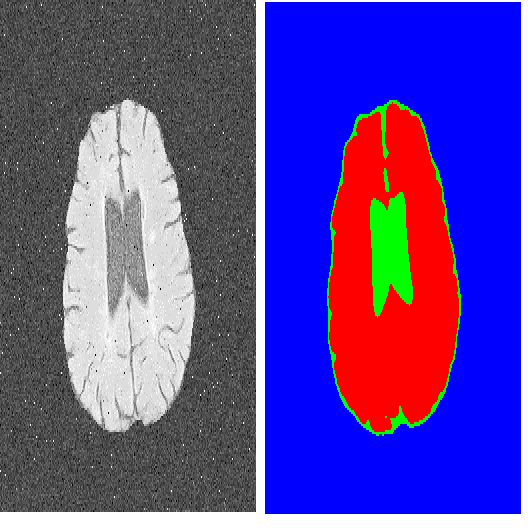Deep learning has achieved tremendous success in computer vision, while medical image segmentation (MIS) remains a challenge, due to the scarcity of data annotations. Meta-learning techniques for few-shot segmentation (Meta-FSS) have been widely used to tackle this challenge, while they neglect possible distribution shifts between the query image and the support set. In contrast, an experienced clinician can perceive and address such shifts by borrowing information from the query image, then fine-tune or calibrate her prior cognitive model accordingly. Inspired by this, we propose Q-Net, a Query-informed Meta-FSS approach, which mimics in spirit the learning mechanism of an expert clinician. We build Q-Net based on ADNet, a recently proposed anomaly detection-inspired method. Specifically, we add two query-informed computation modules into ADNet, namely a query-informed threshold adaptation module and a query-informed prototype refinement module. Combining them with a dual-path extension of the feature extraction module, Q-Net achieves state-of-the-art performance on widely used abdominal and cardiac magnetic resonance (MR) image datasets. Our work sheds light on a novel way to improve Meta-FSS techniques by leveraging query information.
翻译:深层学习在计算机愿景方面取得了巨大成功,而医疗图像分割(MIS)由于数据说明的缺乏,仍然是一个挑战,而医疗图像分割(MIS)仍是一个挑战。 用于微小截分(Meta-FSS)的元学习技术已被广泛用于应对这一挑战,而它们忽视了查询图像和成套支持之间可能的分布变化。 相比之下,有经验的临床医生可以通过从查询图像中借用信息,然后微调或相应校准其先前的认知模型来感知和应对这种转变。 受此启发,我们提议Q-Net(Query-知情的Meta-FSS)方法,即以专家临床医生的学习机制的精神模仿Q-Net(Meta-FSS)。我们根据ADNet(最近提出的异常检测激励方法)建立Q-Net(QNet)。具体地说,我们在ADNet(ADNet)中添加了两个有查询依据的计算模块,即一个有查询依据的门槛的门槛适应模块和一个知情的原型改进模块。 将它们与特征提取模块的双向扩展,Q-Net(Q-Net)实现最新状态的艺术表现,我们广泛使用的磁力磁再利用的图像技术的光学-Rismax。</s>




